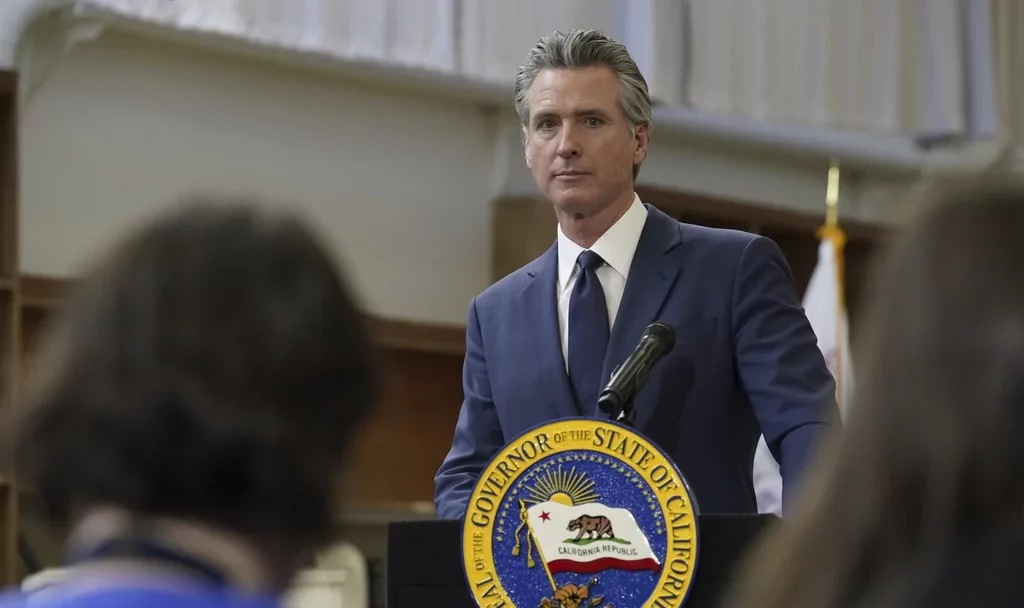California‘s largest public-sector union negotiated an eleventh-hour deal with Democratic Gov. Gavin Newsom, securing a one-year delay on his statewide return-to-office mandate that was supposed to start on Tuesday.
Newsom said earlier this year that all state workers would be forced to return to the office at least four days a week, starting July 1. State employees had only been required to be in the office twice a week.

“In-person work makes us all stronger,” Newsom said, adding that it would lead to better collaboration, innovation, and accountability.
The new deal applies to 100,000 workers covered by the Service Employees International Union Local 1000.
“We’ve reached an agreement with the State that protects our raise, pauses the return to office order, and gives us a path to bargain again in 2026,” SEIU said in a statement. “Earlier this year, Governor Newsom and the State Legislature asked all unions to return to the table to address the state’s budget crisis. When they canceled our negotiated raise, SEIU Local 1000 pushed back.”
SEIU was referring to a 3% increase in pay that was agreed to in 2023 and expected to go into effect on July 1. SEIU’s announcement echoed similar ones made by other unions operating in the state as part of broader labor negotiations to reduce California’s compensation costs during a tight budget year.
Camille Travis, CalHR’s Deputy director of communications, confirmed an agreement had been reached with the union.
“Upon approval by the Legislature and the Governor, the agreement’s terms will be effective through June 30, 2027, unless modified between the parties through a successor memorandum of understanding or subsequent side letter,” Travis said in a statement. “We are pleased to have reached an agreement with the leadership of SEIU Local 1000. Through collective bargaining, the parties’ agreement achieves savings as proposed in the Governor’s May Revision. Also, the parties mutually agreed to suspend the return to office requirements until July 1, 2026, as part of a comprehensive agreement that addresses many mutual priorities.”
Anica Walls, president of SEIU Local 1000, called the deal “a win.”
“We’re glad that we were able to mitigate cuts that were proposed by the administration,” she said. “We were really proud that we were able to protect our 3% general salary increase. We’re really excited about being able to pause the return to office mandate.”
But not everyone is excited about the announcement.
Businesses in downtown Sacramento that were anticipating more foot traffic when workers returned said their stores could take a hit.
“We’re ready for people, for the crowds, and for everything,” said Betty Hsie of Richtech Robotics, whose client is Botbar Coffee, a Java shop steps from the Capitol. “I mean, definitely, it’s a negative. It’s not what we want. We want to see people. Want to see people come in, and we have a nice place and technology even for them, you know, just sort of more people, more crowds.”
Bistro Bravado owner Christopher French was also disappointed by the news.
“We’re still getting our sea legs underneath us,” he told KCRA, adding that other businesses saw the return-to-work order “as kind of a lifeline — like it’s kind of the light at the end of the tunnel.”
‘BIDEN WANTED ME IN HERE:’ TRUMP SAYS INSIDE CAGES ‘ALLIGATOR ALCATRAZ’ DETENTION SITE
Walls was less sympathetic.
“[Businesses] shouldn’t depend on us for their business,” she said. “Quite frankly, with the cuts that were proposed, we wouldn’t have been. There may have been foot traffic, but we wouldn’t have had the money to go in and eat.”















